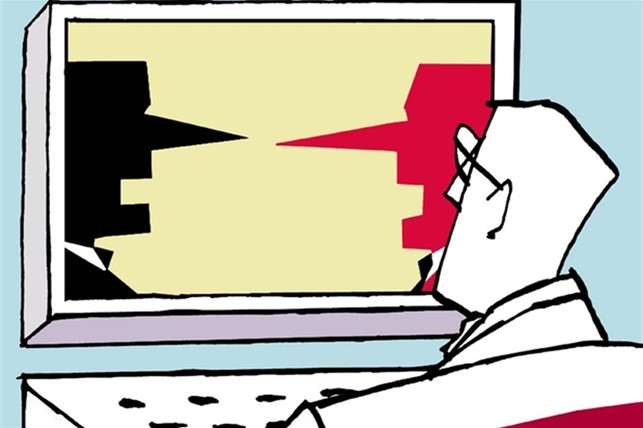NIT S.R.L. v. the Republic of Moldova, No. 28470/12, ECtHR (Grand Chamber), 5 April 2022

In the case NIT S.R.L. v. the Republic of Moldova the European Court of Human Rights, sitting as the Grand Chamber, ruled on the complaint filed by the Moldovan company NIT S.R.L. against the withdrawal of its broadcasting license. This measure had been taken following harsh criticisms of members of the Moldovan government during various NIT programs, together with the open support shown for the opposition parties. Notably, the Moldovan authorities believed that such behaviours undermined political pluralism in the media. The applicant company complained of the unlawful interference with its right to freedom of expression in breach of Article 10 ECHR.
As pointed out by the ECtHR itself, the issues raised by this case are quite peculiar in the context of the European jurisprudence on media pluralism. Specifically, two aspects deserve to be mentioned. On the one hand, although traditionally the Strasbourg judges have focused on unlawful interferences by states in the right to freedom of expression that were damaging to media pluralism, in NIT S.R.L. v. the Republic of Moldova a decision by public authorities to ensure pluralism was challenged. The Court thus had to strike a fair balance between the community’s interest in safeguarding media pluralism and respect for editorial freedom. On the other hand, the conduct of NIT S.R.L. as sanctioned by the Moldovan authorities was found to be detrimental to the so-called internal pluralism – meaning the openness of the media to the different political and cultural trends in a country. On the contrary, the European jurisprudence had mainly dealt with issues related to the so-called external pluralism – which pertains to the need to ensure a plurality of voices in all media and, therefore, to avoid situations of monopoly, duopoly, or otherwise audio-visual market dominance. In this regard, the Court made it clear that, when assessing media pluralism, aspects of internal and external pluralism must be considered in combination, since the lack of internal pluralism could be balanced by external pluralism and vice versa.
After pointing out that there is no democracy without pluralism and that states must guarantee media pluralism by ensuring the diversity of program contents so that they reflect as much as possible the variety of opinions of a society, the Court evaluated the legitimacy of the Moldovan authorities’ decision. More in detail, it chose to consider first how Moldova had fulfilled its positive obligation to put in place a legislative and administrative framework guaranteeing media pluralism. Specifically, the Court noted that the internal pluralism policy as adopted by the Moldovan authorities had received the Council of Europe's approval; moreover, it referred to several elements that led it to make a positive judgment on the regulatory framework set up in Moldova to protect media pluralism. Secondly, the Grand Chamber focused on the manner of implementation of the mentioned framework, intending to assess whether the negative obligation of the State not to unlawfully interfere with the right to freedom of expression had been breached. In other words, the judges wondered whether the withdrawal of the broadcasting license was supported by sufficient and relevant reasons for the purposes of the “necessity” test under paragraph 2 of Article 10 ECHR. The answer was yes. NIT S.R.L., in fact, had failed to comply with the principle of internal political pluralism, not providing a balanced and equal space to the country’s different political movements but only favouring the opposition parties, thus promoting a unilateral point of view and sometimes distorting reality. Moreover, particularly offensive language was used against the government during the broadcasts, and the institutions or people criticized were not allowed to respond to the attacks.
As for the relationship of proportionality between the impugned sanction and the legitimate aims pursued by the Moldovan authorities, the Court acknowledged that the withdrawal of the license was the most serious sanction that could have been imposed on NIT S.R.L. However, it also noted that the revocation had occurred only in the face of a gradual series of sanctions that had failed to deter the applicant company from engaging in contra legem behaviours. In addition, the judges considered the procedural safeguards put in place by the Moldovan system to prevent arbitrary decisions by the authorities satisfactory. The Court was aware that the severity of the contested measure might have affected the activities of the NIT company and might have resulted in a “chilling effect” on the freedom of expression of other Moldovan broadcasters. Nevertheless, on the basis of the specific circumstances of the case, it was found that the national authorities had acted within their margin of appreciation in achieving a reasonable relationship of proportionality between the competing interests at stake.
In conclusion, the Grand Chamber found that the interference with the applicant company’s right to freedom of expression was “necessary in a democratic society” under Article 10 of the Convention. Moreover, it held that the Moldovan authorities had succeeded in striking a fair balance between the public interest in safeguarding media pluralism, on the one hand, and protecting the NIT S.R.L.’s freedom of expression, on the other.
(Comment by Chiara Chisari)

